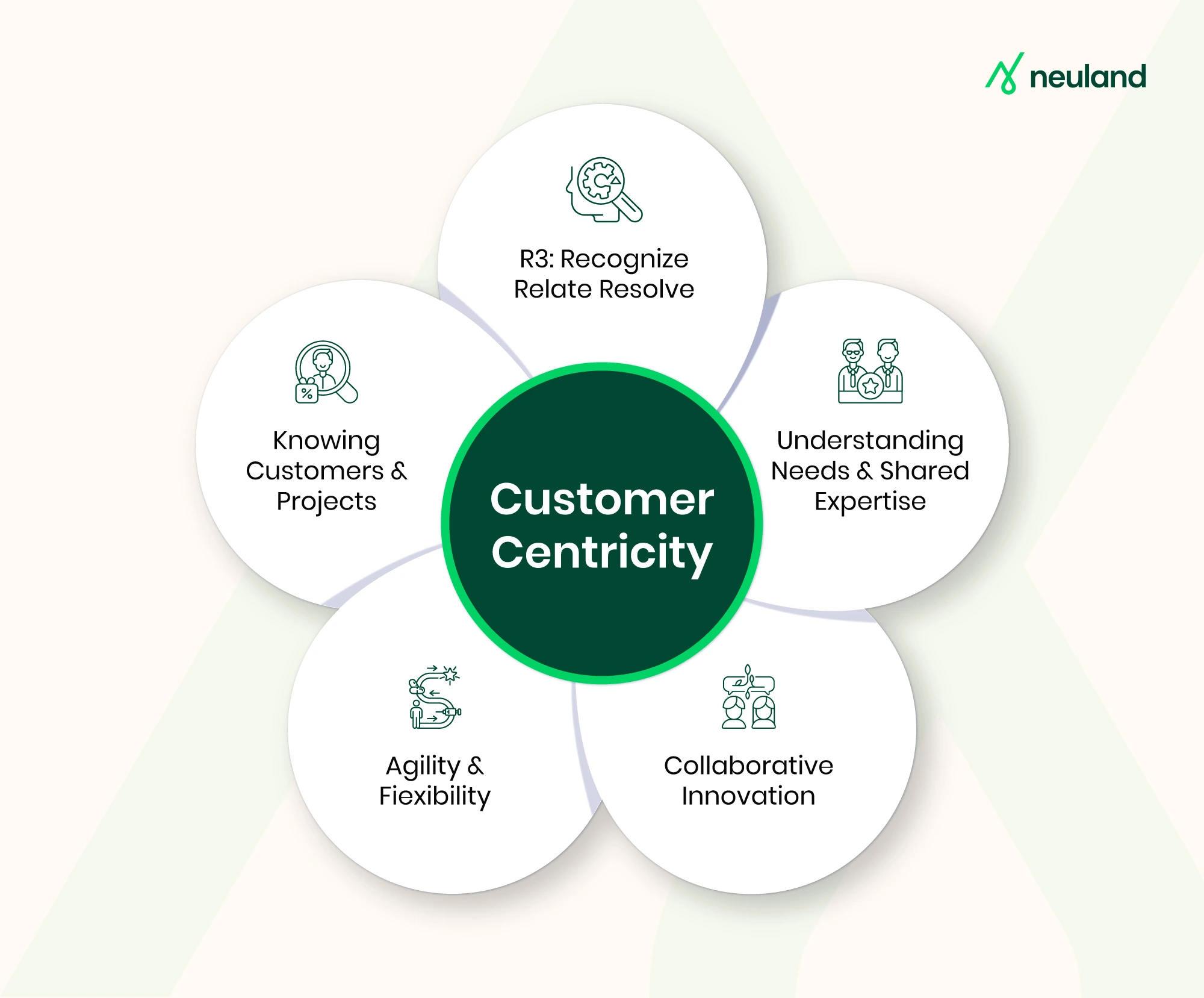Why a Customer-First Mindset Is the Key Driver of Innovation in CDMOs
Contract Development and Manufacturing Organizations (CDMOs) have become pivotal partners in the pharmaceutical industry’s innovation ecosystem.
However, when a pharmaceutical client asks for real-time manufacturing data, a flexible tech transfer plan, and consultative support (all in one conversation), only a few CDMOs say yes. Those are the innovators redefining the industry.
In this competitive landscape, CDMOs innovate through technology, process improvements, and by reshaping customer service. Customer-centricity and a service culture drive CDMO innovation and long-term success, fostering deeper partnerships, agility, and better delivery results.
This article examines how focusing on customers and a service-driven culture drives innovation in the CDMO sector, highlighting strategies like digital transformation and flexible collaboration models that leading CDMOs use to stay ahead.
A Culture of Service Is the Foundation of CDMO Innovation
This culture emphasizes organizational attitudes valuing exceptional customer service:
It Starts with Mindset, Not Machinery
A customer-centric CDMO fosters innovation through ownership, transparency, and responsiveness. This culture drives team members to surpass expectations, take initiative, and adapt based on client feedback.
When client success is the shared goal, teams are motivated to solve problems creatively, whether through flow chemistry, regulatory strategies, or reducing costs and timelines. A culture of innovation in CDMOs arises not from flashy systems, but from understanding each customer's needs.
Empowered Teams Are at the Center of It
Leadership models customer-first behavior and aligns teams on client success. CDMOs that reward responsiveness and real-time problem-solving build trust and agility.
Team decisions, like adjusting processes or sharing data, add value. When employees feel ownership, they’re more likely to innovate for clients, turning service culture into a key growth driver.

What Customer-Centric CDMOs Actually Do Differently
The most effective customer-centric CDMOs don’t just provide CDMO services. They adapt every part of their operation around the client's success. It’s also a key differentiator in an industry where service excellence in pharma is no longer optional, it’s expected.
Moving Away from ‘Our Way or No Way’
Traditional pharmaceutical contract manufacturing models often fail when they enforce static processes across diverse programs. Contract manufacturing pharma partners that succeed today are those who tailor their methods to each sponsor’s scale, structure, and stage.
Handling Change with Calm and Creativity
Schedules shift. Scope evolves. A high-performing CDMO absorbs these shocks without friction, reallocating resources, flexing timelines, and finding creative solutions without compromising quality or outcomes. This agility is foundational to long-term trust.
The Role of Communication and Transparency
Clear updates, honest timelines, and direct access to decision-makers help avoid misalignment. CDMOs that offer value-added CDMO services don’t just execute, they co-own the client’s goals with clarity and accountability.
Digital Transformation and Smart Manufacturing Trends
CDMOs have also turned to digital transformation and smart manufacturing as key enablers of customer-centric innovation.

From smart factories to smart partnerships
Embracing “Pharma 4.0”, i.e., automation, analytics, IoT, and AI, helps CDMOs meet client demands for speed, quality, and transparency. Many are adopting these technologies as regulators and clients push for better data integrity and real-time visibility.
Digital processes and “smart factories” enable CDMOs to offer transparency and control, providing clients with real-time access to manufacturing data, which builds trust and confidence in their partnerships.
How digitalization improves flexibility and efficiency
Digitalization enhances efficiency, reliability, and client benefits. It reduces downtime by up to 40%, prevents quality issues, and enables consistent on-spec production.
Tools like predictive maintenance and fault detection improve quality and delivery, lowering costs and errors, forecasted to reduce quality-related expenses by 17% and improve delivery reliability by 14%. Originally aimed at cost savings and quality, digital manufacturing now also boosts flexibility and customer value.
Why tech alone isn’t enough: It’s the people behind it
To successfully implement digital and “smart factory” initiatives, end-to-end CDMOs must invest in their people and processes, emphasizing that technology and culture are interconnected.
Smart manufacturing requires employees who can analyze data from automated systems, supported by training and hiring data-savvy talent. Advanced automation supports human-focused problem-solving and client communication, leveraging rich data.
A New Paradigm in CDMO Innovation
Innovation in CDMOs now encompasses technical innovation (like adopting digital, “smart” manufacturing and new process technologies) and business innovation (like redefining company culture, service models, and partnership structures to be truly customer-centric).
By fostering a service-oriented culture and aligning innovations with customer needs, CDMOs can stand out and build lasting partnerships. Such partners help deliver medicines faster and more efficiently, benefiting all stakeholders.
The future of pharmaceutical outsourcing will be shaped by those organizations that can marry scientific and operational excellence with a deep commitment to customer service.
Neuland Labs, a global CDMO specializing in small molecules and peptides, exemplifies this approach of project management in its own strategy, emphasizing collaborative customer relationships and a relentless focus on quality and service.
By keeping the client’s goals and patients’ needs at the core of its innovation efforts, Neuland and other like-minded CDMOs are positioning themselves as true extensions of their partners’ teams.
FAQs
|
|
|
|